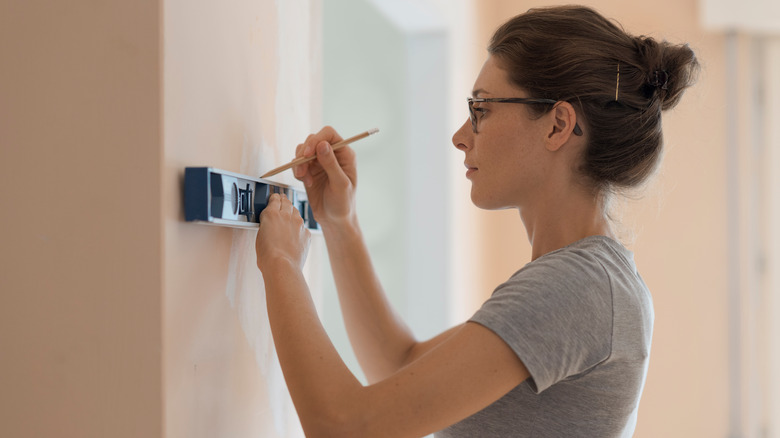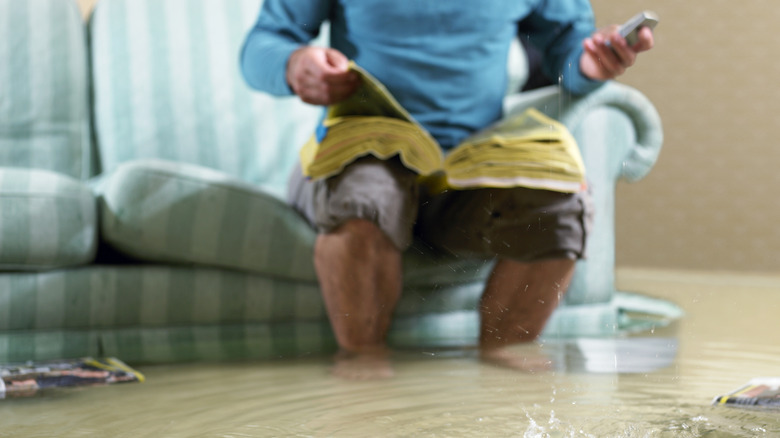10 Things To Consider Before Becoming A Landlord
Performing the functions of a landlord can be immensely challenging. For those who have never managed a rental property before, the learning curve often feels quite steep. However, many people make the leap into rental property ownership in an effort to continue building long-term financial mobility for themselves. Forbes and Insider each note that real estate is one of the best opportunities to build wealth for the long term that any potential investor can take advantage of.
Real estate provides an excellent return on investment. And, with the continued price momentum of homes across the board, you can typically expect to see a value addition to the underlying property itself, alongside the continuous monthly rental income that the home or apartment generates. For many, rental income covers the cost of the mortgage loan and then some, allowing for your investment to grow over time in value without you having to continuously infuse new cash into the endeavor. Of course, it's not a given that any particular property will be a moneymaker, and this is something to note about any investment opportunity that you might be considering.
With the following 10 things in mind, adding property to your portfolio of investment assets can be made a little easier with a greater beat on success for the future.
1. Respect your tenants
Communication lies at the heart of any positive landlord-tenant relationship (via Resooma). In order to maintain a financially viable investment property, you'll need to work hand-in-hand with your tenants. They are entitled to a certain set of rights and actions from you. You must keep the home in proper working order and to maintain a healthy and long-term relationship, and you'll need to work with tenants regarding anything they find important.
If a tenant leaves, you need to relist the home, find new tenants, and hope that they will treat the property with respect. Holding on to good tenants is a key asset.
2. You'll likely become a handyman
Landlords who can manage some of the small repairs on their own are in a much better position than those who rely on outsourced help for every single maintenance request. Remember, this investment property is exactly that. The more money you spend on maintaining and repairing services in the home the less profitable it will become over time.
Learning how to repair appliances, install simple electronics, and maintain the finishing touches on furniture, walls, and other fixtures in the property is a must if you want to maximize the return on your investment, according to Apartments.com.
3. Remember that this is your business
One thing that some new landlords forget is that the home they've invested in is indeed a business. This is especially true for homeowners who have recently bought a new property and kept their old home for use as a rental opportunity. You need to take the emotional attachment to this home out of the equation in order to be a successful landlord, per JMZ Management.
Your investment property exists to bolster your financial future, so it's important to always treat it in this way rather than letting your feelings stand in the way.
4. Outsource financials
You might want to outsource the financials of the property to a certified accountant. This will give you access to tax filing assistance which can be a major asset (via Wright Vigar). Similarly, you could hire a management company to deal with the collection of rent and other fiscal responsibilities. This gives you a more hands-off relationship with your tenants, making it a more relaxed dynamic more broadly.
These assets can make a big difference when it comes to managing the cash flow of the property, but of course they come at a cost, eating into your total earnings on the home.
5. You'll need a document storage system
Documents often pile up quickly for landlords. From lease agreements to maintenance requests, there is a mountain of paperwork and records that are created throughout the time of even a single tenant's time in the property.
It's important to document everything. This protects you from potentially trumped-up claims and helps the tenant get what they deserve from you as a homeowner. You are owed prompt payment, but your tenant is entitled to responsible management of the property. Keeping comprehensive and streamlined records helps you tackle both, according to Landlord Tips.
6. You have to be available to your tenants
It's important for all landlords to maintain availability, especially whenever your tenant calls with a problem. You are responsible for solving any issues that a tenant may experience in the home, as noted by LiveAbout. This means that you need to provide multiple ways to reach you and ensure that the tenant knows who exactly to call if you are unavailable or away on vacation.
Becoming a landlord demands increased uptime on the management of your asset, as opposed to other forms like stocks.
7. Think about the kinds of tenants you want in the home
Before becoming a landlord you should figure out the type of renter you want in your home. The kind of property that you list for rent will dictate a lot about what kind of renter is attracted to what you have to offer. A small apartment in a college town will often attract university students whereas a family home in the suburbs will bring about a different clientele. Considering the kind of tenant you want to deal with can help you select the appropriate type of rental property to invest in (via Investopedia).
8. Consider tenant referencing resources
Tenancy referencing resources are a critical step in the right direction when it comes to managing a property and getting the best possible tenants. Referencing helps you understand any potential risks that you might be exposing yourself to, according to Curchods. Most renters aren't looking to pull a fast one on unsuspecting landlords, but this kind of person does exist out there in the world; referencing can help you spot one before you sign over rights to the property.
Referencing also helps you understand a potential renter's background, credit information, and address history, among other things.
9. Take out landlord insurance for the property
Insurance products can be used to cover a wide variety of different things in a person's life, and landlord insurance is an essential feature of good property management. Insurance for landlords is no different than a product designed to protect other aspects of your financial and social existence. Landlords insurance can especially help protect you in the event of an emergency.
Investopedia notes that landlord insurance can be used to help defray the costs of losses if regarding general liability and damage to the property that renders it uninhabitable for a period.
10. Always use written agreements and documented correspondence
It goes without saying, but many landlords still fall into the trap of not using written contracts, deposit agreements, and correspondence. It's better for everyone when these types of interactions are written down and recorded (via Contiguglia). Protecting yourself against a rogue tenant is as simple as always corresponding through email or text. Similarly, a tenant will feel far more secure in their home if everything that you have agreed to is written down and accounted for in a tenancy agreement, as well as any subsequent addendums that must be made to the terms of the lease.










